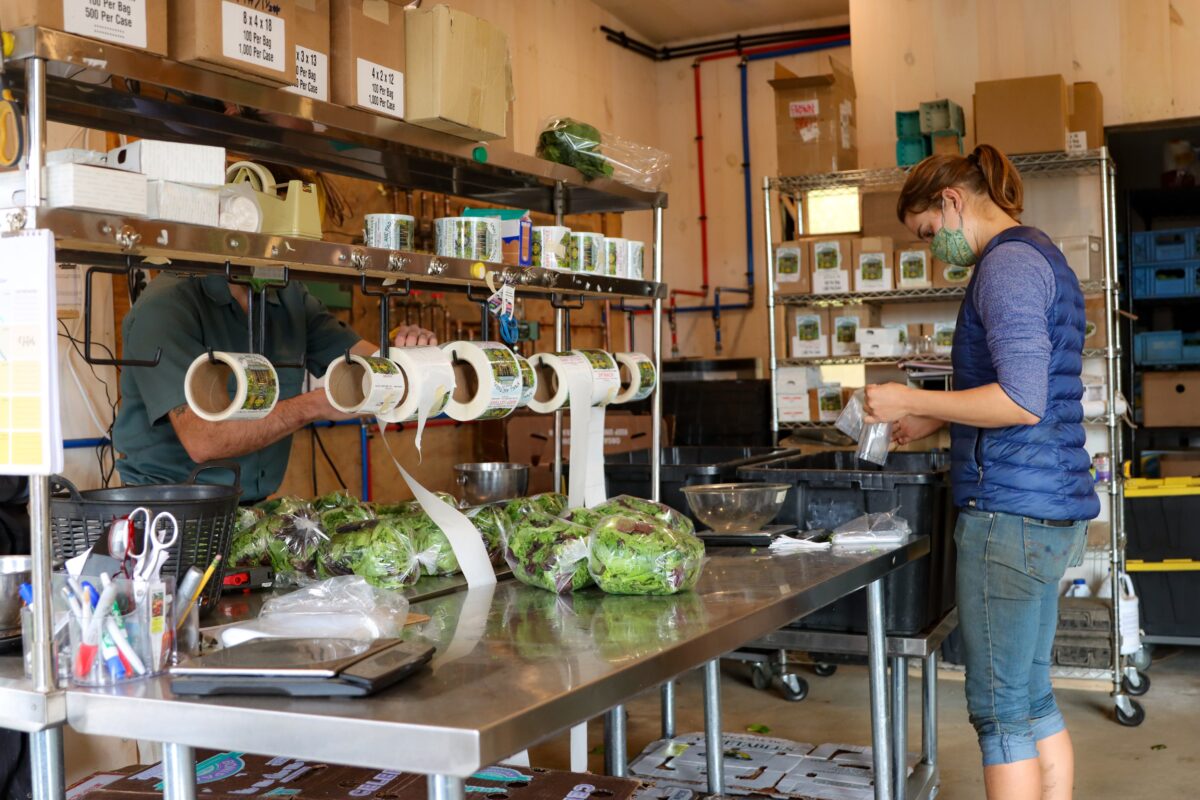Proper management of postharvest handling practices is key to efficiency and safe working conditions on many farms. But small- to moderate-sized producers often struggle to keep pace with increasingly stringent rules that may vary by state or by county. One successful SARE-funded project rose to the challenge and provided hundreds of thousands of farmers with technical support that enhanced the sustainability of their operations.
To help Vermont’s farmers safely and profitably meet the growing demand for local produce, Christoper Callahan and his team at University of Vermont Extension used SARE funds to equip farmers with resources and on-farm training on how to better manage postharvest handling practices and equipment. As a result, farm businesses are increasing production, ensuring safety and achieving greater financial sustainability.
The project was able to impact the social sustainability, production efficiency and economic sustainability of participating operations through the grantees’ and stakeholders’ engagement with project activities. Ultimately, Callahan documented $680,000 in cost savings through improved labor efficiency and reduced waste during the project.
A recent post-project evaluation of SARE projects awarded between 2016-2019 found that investing in farmer knowledge and capacity as peer trainers was key to the project’s impressive impacts. Positioning farmers as trainers builds their ability and motivation to provide other producers with practical guidance from experienced peers they trust.
“There’s something that comes from that peer learning that I’m never going to be able to provide,” says Callahan. All the growers we've worked with were not only partners but also true collaborators in knowledge creation and sharing.”

Farm workers at Small Axe Farm (Barnet, Vermont) are packing salad greens inside the newly built wash/pack building. These two stainless steel tables make packing greens efficient with access to scales, labels and packaging supplies all within easy reach. Credit: Andy Chamberlin
Visit www.sare.org/sare-impacts-LNE19-375 for additional details about this project.
Staying Ahead in the Packshed: Improving Postharvest Equipment and Building Guidance for Fruit and Vegetable Farms is part of a series of 23 case studies produced by Insight for Action as part of a post-project evaluation of SARE's regional grant programs.
Visit https://www.sare.org/sare-impacts to learn more. For information on grants and resources available from SARE, visit www.sare.org.